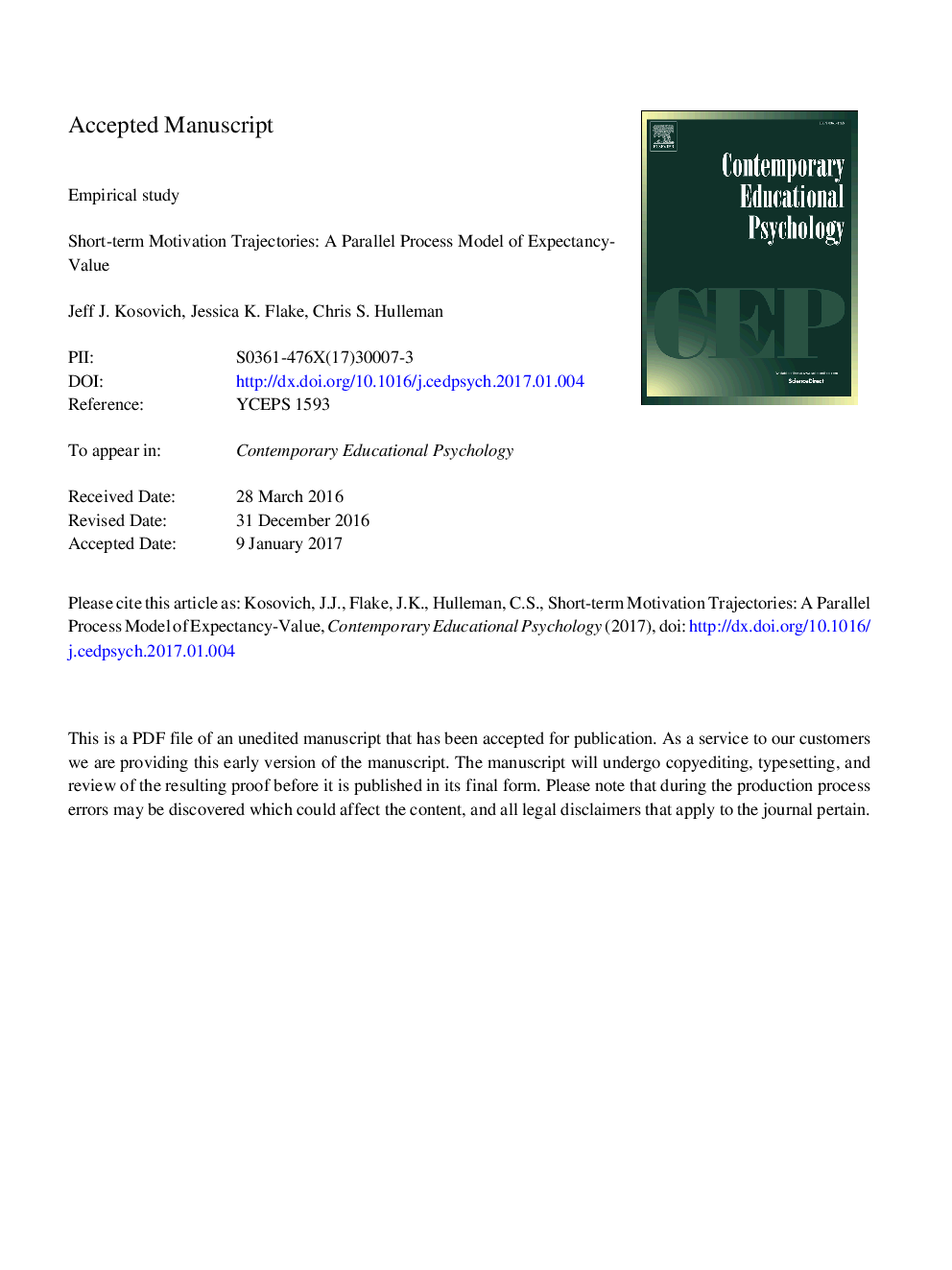| Article ID | Journal | Published Year | Pages | File Type |
|---|---|---|---|---|
| 4937896 | Contemporary Educational Psychology | 2017 | 42 Pages |
Abstract
Motivation plays a critical role in human behavior and is particularly important during college, where a single class can make or break an academic career. The longitudinal research on expectancies for success and utility value primarily focuses on prediction or change over many years, rather than change over a short period of time. However, a single class in college can often be the difference between getting a degree or not. To better understand how motivation progresses in the short-term, we examined changes in expectancy and utility value simultaneously during a single college class. Both constructs declined during the class and showed significant variability across individuals. In addition, change in expectancy was strongly correlated with change in utility value, and the expectancy slope estimates were significant predictors of continuing interest. We discuss the need for a better understanding of short-term dynamic relationships between expectancies, utility value, and outcomes.
Keywords
Related Topics
Social Sciences and Humanities
Psychology
Applied Psychology
Authors
Jeff J. Kosovich, Jessica K. Flake, Chris S. Hulleman,
